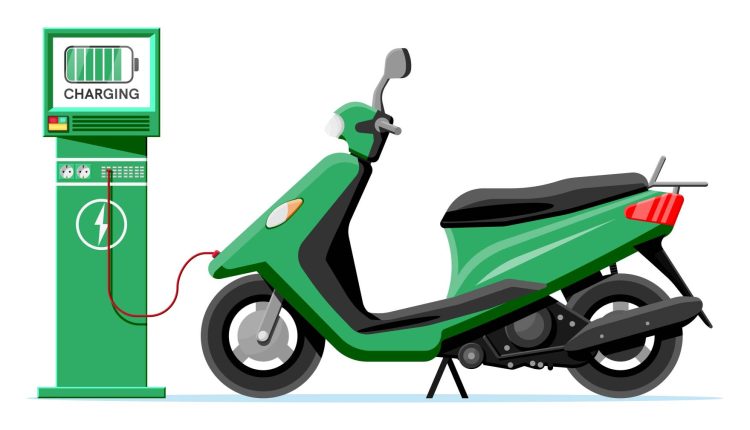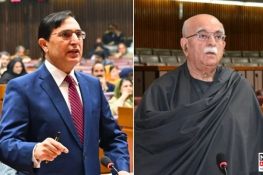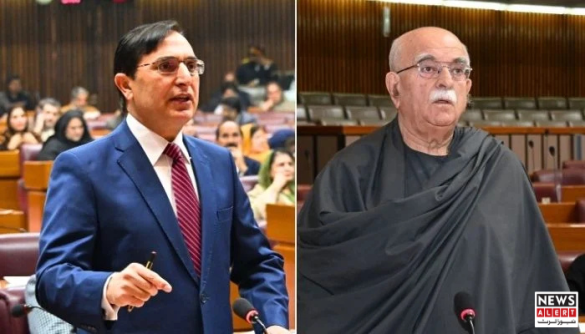Transition to Electric Mobility
Karachi Mayor Barrister Murtaza Wahab has announced the introduction of electric motorbikes for employees of the Karachi Metropolitan Corporation (KMC). The initiative is part of the city’s broader plan to reduce operational expenses while promoting environmentally friendly practices.
Speaking at a press briefing, Wahab confirmed that KMC has decided to gradually replace its fleet of petrol-powered motorbikes with electric alternatives. He described the move as both an economic necessity and an environmental responsibility, given the city’s rising fuel costs and worsening air pollution.
Who Will Receive the Motorbikes?
According to the mayor, the first batch of electric motorbikes will be distributed to KMC’s dispatch riders. These workers are often required to travel across the city to deliver documents and messages, making them among the most frequent users of the existing motorbike fleet.
In the second phase, the facility will be extended to women employees. Wahab emphasized that female staff members, who often face transport challenges in Karachi, will benefit greatly from the initiative.
Cost and Procurement Details
Each electric motorbike has a market price of 240,000 Pakistani rupees (about USD 860). However, Wahab said the city administration secured a more favorable deal, purchasing them at 215,000 rupees each (around USD 770).
Initially, 20 electric bikes have been procured. These will be allocated to selected workers in the first rollout phase. Wahab indicated that the program could be expanded in the future if it proves successful.
Charging Infrastructure
To support the shift, KMC has installed a charging station within its main building. The administration also plans to establish additional charging points across different parts of Karachi.
These facilities will be monitored through a mobile application, allowing real-time tracking of availability and usage. Wahab said this system would ensure efficiency and transparency in managing the infrastructure.
Environmental and Technological Benefits
The mayor described the program as more than just a cost-cutting measure. He said it represented a broader push toward sustainability, reducing the city’s carbon footprint and embracing smart technologies.
Currently, KMC is the only municipal council in Pakistan that operates entirely on solar energy. At the federal level, the government has also launched initiatives such as the PM’s free e-bikes and loaders scheme for students and unemployed youth, showing a nationwide shift toward cleaner and affordable mobility. Several of Karachi’s major roads, including Shahrah-e-Faisal, Shahrah-e-Iran, and Shahrah-e-Ghalib, are also in the process of being powered by solar panels.
According to the World Health Organization, air pollution contributes to more than 128,000 deaths annually in Pakistan. Experts argue that transitioning to cleaner transport could play a vital role in reducing urban emissions.
Preparations for Monsoon Rains
During the same press briefing, Wahab also addressed the city’s preparations for upcoming rainfall. The Pakistan Meteorological Department has forecast showers between August 30 and September 2.
To prevent flooding, KMC will deploy machinery at known choke points in the drainage system. Traffic police and wardens will also be stationed across key roads to manage congestion.
Furthermore, temporary relief camps will be established in different parts of the city. These camps will provide immediate assistance to citizens in case of emergencies during the rains.
Appeal to Citizens
Wahab urged Karachi residents to remain calm and avoid panic during heavy rains. He noted that chaotic driving and unnecessary movement on waterlogged roads often worsen traffic jams and delay relief efforts.
“Collective responsibility is vital,” the mayor said. “If everyone exercises patience, it will help us minimize disruption and protect citizens’ safety.”
A Step Toward a Cleaner, Safer Karachi
The launch of electric motorbikes signals an important step in Karachi’s efforts to modernize municipal services while tackling environmental challenges. While the first rollout is modest, city officials hope the initiative will encourage other government departments and private businesses to explore similar transitions.
For now, the program reflects a small but significant move toward building a more sustainable urban future for Pakistan’s largest city.















